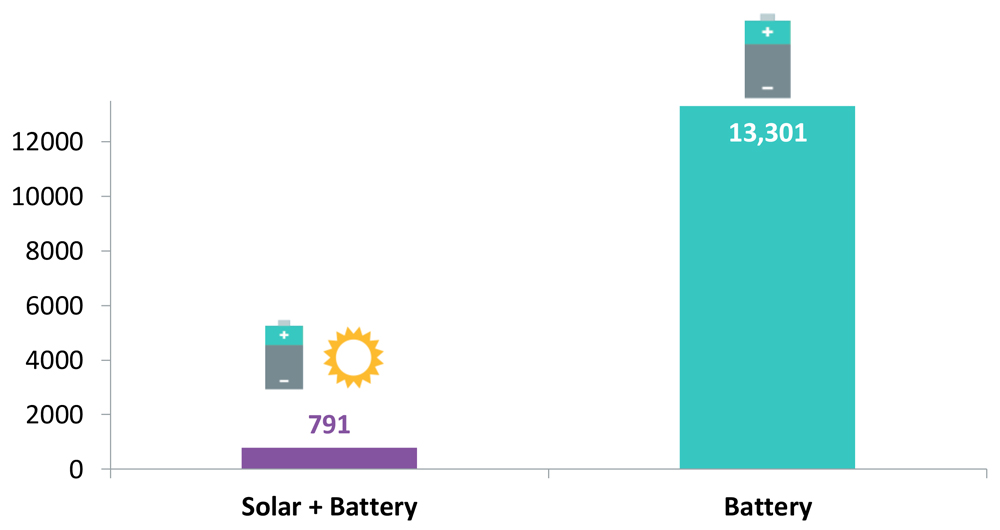FERC on Friday approved PJM’s request to delay its Base Residual Auction for the 2025/26 delivery year, directing the RTO to submit a compliance filing that sets a June 2024 date (ER23-1609).
The commission’s ruling came just a day before its 60-day deadline to act; the RTO had said it would hold the auction as originally scheduled this Wednesday if the commission did not rule on its request. (See PJM Capacity Auction Weeks away with No Answer on Delay.)
PJM sought the delay to give itself more time to craft changes to its capacity market through its Critical Issue Fast Path process in reaction to the December 2022 winter storm. In its filing, it included a potential, “illustrative” schedule for the 2025/26 auction and three subsequent auctions, along with their respective Incremental Auctions, until it could resume its normal schedule beginning with the 2029/30 BRA in May 2026.
FERC approved the request, conditioned on PJM using that schedule.
“We find that the potential scope and magnitude of the capacity market-related reforms PJM is considering in its stakeholder process provide sufficient justification under [Federal Power Act] Section 205 to delay the auctions until after the commission has an opportunity to act on any proposals that PJM may file following that stakeholder process,” FERC said. But “we agree with commenters that the proposed tariff revisions afford PJM with overly broad discretion to set the auction schedule and fail to provide market participants with sufficient certainty as to the auction start dates for the [2025/26 through 2028/29] delivery years. … PJM must include the [illustrative] schedule in addition to PJM’s proposed tariff language stating that it will post the revised auction schedule on its website.”
The RTO’s schedule is based on it filing revisions by Oct. 1 and winning FERC approval of them without material changes by Dec. 1.
FERC also granted PJM’s request for 10 business days of leeway for specific pre-auction deadlines, agreeing that it would be administratively burdensome to file new tariff revisions for each one if there is a need for a change. “However, we recognize PJM’s commitment to post the specific dates of pre-auction activities no later than eight months prior to the commencement of any associated BRA in order to ensure that all market participants are aware of the relevant deadlines,” it said.
Commissioner James Danly concurred with the order, but he highlighted the move as an “extreme measure.”
“I only support delay in this case because PJM’s existing Reliability Pricing Model mechanism is manifestly unjust and unreasonable, and continuing to run auctions under the current rules will continue to produce unjust and unreasonable rates,” Danly wrote. “My colleagues, however, have not to date supported my calls to issue a Federal Power Act Section 206 investigation into PJM’s markets and its administration of them. Thus delaying the unjust and unreasonable auctions for PJM to develop market ‘enhancements’ is an appropriate exercise of our Section 205 authority and, given my colleagues’ reticence to act, the best we can hope for at present.”
Commissioner Allison Clements dissented, saying PJM failed to demonstrate its proposal to delay the auctions was just and reasonable. While she said she appreciated that the majority required “at least a minimal level of clarity” by directing the RTO to file the illustrative schedule, the order “sets a dangerous precedent that may essentially allow RTOs to schedule auctions according to their own whims, undermining certainty and stakeholder confidence in market rules and utility tariffs across the country.”
“If the mere possibility of future market reforms constitutes grounds for delaying particular auctions, absent evidence that existing rules are in fact unjust and unreasonable, how can market participants have any confidence in auction schedules memorialized in their current tariffs?” Clements wrote in a lengthy dissent. “PJM’s proposed delay is predicated on the need to wait until its current market rules are reformed, but PJM does not even specifically detail what those market reforms will be, let alone make out a legal case for why those reforms are necessary.”
